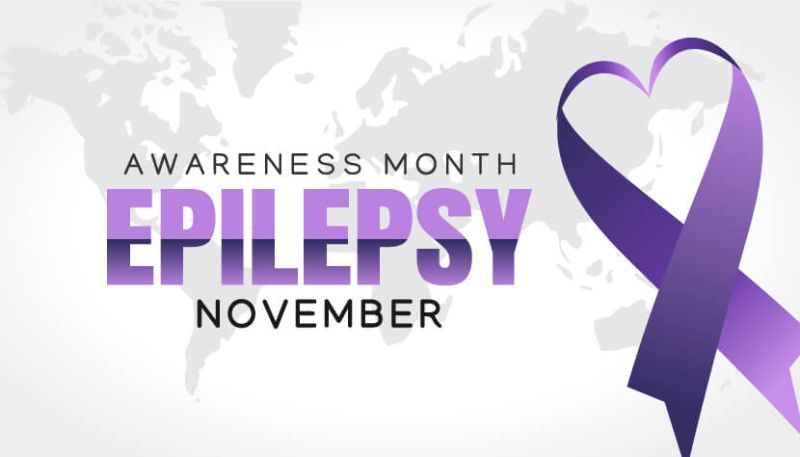National Epilepsy Day
Nov 17, 2021

How common is Epilepsy and what needs to be done to ensure the well-being of these epileptic patients? Visit our blog to know more. To book an appointment call 9205478479 or visit https://www.apollodiagnostics.in/
Epilepsy is a neurological disorder that affects the brain and causes recurring seizures or fits in patients. It is due to the uncontrolled increase in electrical activity in the brain that interferes with normal functioning and causes a short interruption to the relay of messages to the brain.
Significance of Purple Ribbon: -
Lavender is the international colour used to signify epilepsy as the flower is associated with solitude, which represents the feeling of isolation among people with epilepsy. Increasing discrimination in workplaces, lack of understanding, and lack of funding for research or therapy have made it difficult to tackle this problem. Although, efforts are being made to improve the lifestyle of patients and to give them the care they deserve.
Despite affecting more than 50 million people worldwide and being one of the oldest known medical conditions, the fear and misunderstanding created about epilepsy makes it difficult for people to speak out, which can lead to many patients being left untreated. India itself has around 12 million people with epilepsy and all of them require adequate treatment to ensure their well-being.
India itself has around 12 million people with epilepsy and all of them require adequate treatment to ensure their well-being.
Symptoms: -
- Sudden twitching (Uncontrollable jerking motions of the arms and legs)
- Loss of consciousness
- Stiff muscles
- Temporary confusion
- Psychological symptoms such as fear, anxiety, or déjà vu
Causes: -
It is possible to be partly caused because of genetic predispositions but most cases of epilepsy develop due to damage to the brain in the form of: -
- Stroke
- Brain Tumour/ Infection
- Severe head injury
- Drug abuse or alcohol misuse
- Lack of oxygen during birth
Types of Seizures: -
They can be classified broadly into 2 categories namely:
- Generalized seizures: Affects both sides of the brain.
- Absence seizures – The patient starts to blink rapidly and blankly gaze
- Tonic-clonic seizures – Muscle jerks or spasms, loss of consciousness, feeling exhausted.
- Focal seizures: Affects one side of the brain.
- Simple focal seizures – Twitching and change in sensation such as taste, smell.
- Complex focal seizures – Confused/dazed and unable to respond to questions or directions for up to a few minutes.
- Secondarily generalized seizures- Effects on a section of the brain but can spread from a focal seizure to a generalized seizure.
Tips for Patient and Caretakers: -
- Do not skip the medications advised by doctors even if you are not having seizures.
- Consult your doctor if you have any medication for other pre-existing illnesses.
- Don’t drink alcohol because it provokes seizures.
- Don’t restrain a person during a seizure.
- Loosen any tight neckwear and gently roll the patient on one side.
- Avoid putting anything in their mouth for the fear of swallowing their tongue.
- Allow the patient to take ample rest.
Related Blog Post
Blog Categories
- Child Health
- Mens Health
- Women's Health
- Mental Health
- Health Myths & Facts
- Fitness
- Nutrition/Recipes
- Remedies
- Weight Management
- Stress Management
- Health Supplements
- Addiction Management
- Disease Management
- Allergy
- Anemia
- Arthritis
- Asthma
- Autoimmune Diseases
- Blood Pressure
- Cancer
- Deficiencies
- Dengue/Malaria/Chikungunya
- Diabetes
- Eye Problems
- Heart Diseases
- Hepatitis
- HIV/AIDS/STD
- Hormonal Imbalance
- Infection/Flu/Viral
- Kidney
- Liver
- Menstrual Problems
- Pregnancy
- Skin & Hair Problems
- Stomach Ailments
- Thyroid
- Others
- Health Checkups
- Diagnostics/Pathology
- Lifestyle & Wellness
- Covid
- Medical Tests
- Cholesterol
- Health Tips
- Parent Care/Old Age
- Lungs
- Food Intolerance








